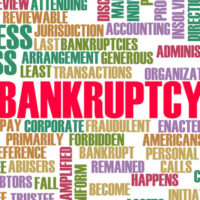Chapter 7 Bankruptcy Can Be a Relief If You Are Between Jobs

You have probably heard a lot of conflicting information about filing for bankruptcy. Filing for bankruptcy gets rid of all your debts, except when it doesn’t. The bankruptcy court can sell your possessions, except when it can’t. Everyone has the right to file for bankruptcy protection, but filing for bankruptcy costs money. Once you meet with a lawyer and start getting into the details of the bankruptcy process, you will begin to see past the advertising slogans. In fact, some debts are eligible for discharge in bankruptcy, while others are not. Individuals, corporations, and even public entities such as city governments have the right to file for bankruptcy protection, even over the protests of creditors, former spouses, and the IRS. As for the details of debt repayment and liquidation of assets, this depends on the bankruptcy category under which you file. To find out which bankruptcy category, if any, is most appropriate for you, contact a Jupiter chapter 7 bankruptcy lawyer.
Chapter 7 Bankruptcy Is a Simple Way to Discharge Your Eligible Debts
Sometimes people get scared when they hear that chapter 7 bankruptcy can involve liquidation of assets, but many debtors successfully complete their chapter 7 bankruptcy cases without forfeiting any assets. Chapter 7 bankruptcy is the fastest and simplest way to discharge your debts. You must prepare thorough statements about your income, assets, and dischargeable and non-dischargeable debts. After the bankruptcy court reviews your documents, it decides which assets, if any, it will liquidate, and then it discharges your eligible debts. This means that tens of thousands of dollars of debt, or even more, can disappear in a matter of months.
Chapter 7 bankruptcy protection is a realistic option for people who have suffered a reduction in income or who are between jobs. The point of a bankruptcy filing is to protect you from becoming destitute. Most, if not all, of your assets are probably exempt from liquidation. Assets that the court considers necessities, such as the house you live in and one vehicle, are exempt assets, and you will not have to forfeit them as a condition of your bankruptcy protection.
Chapter 13 Bankruptcy Is the Business Class of Bankruptcy Categories
Chapter 13 bankruptcy protection is an attractive option only if you fit a certain financial profile. It requires you to enter a debt repayment agreement and make monthly payments to the bankruptcy court for several years, at the end of which, the court will discharge the remaining balance of your debts. The ideal candidate for a chapter 13 bankruptcy case is someone who owns assets that would not be exempt from liquidation in a chapter 7 bankruptcy case but who has a high enough income to afford the monthly payments on the debt repayment plan.
Work With a Debt Lawyer About Choosing the Right Bankruptcy Category
A South Florida debt lawyer can help you prepare for a successful chapter 7 or chapter 13 bankruptcy case. Contact Nowack & Olson, PLLC in Jupiter, Florida to discuss your case.
Source:
nolo.com/legal-encyclopedia/chapter-7-bankruptcy-eligibility-29701.html
